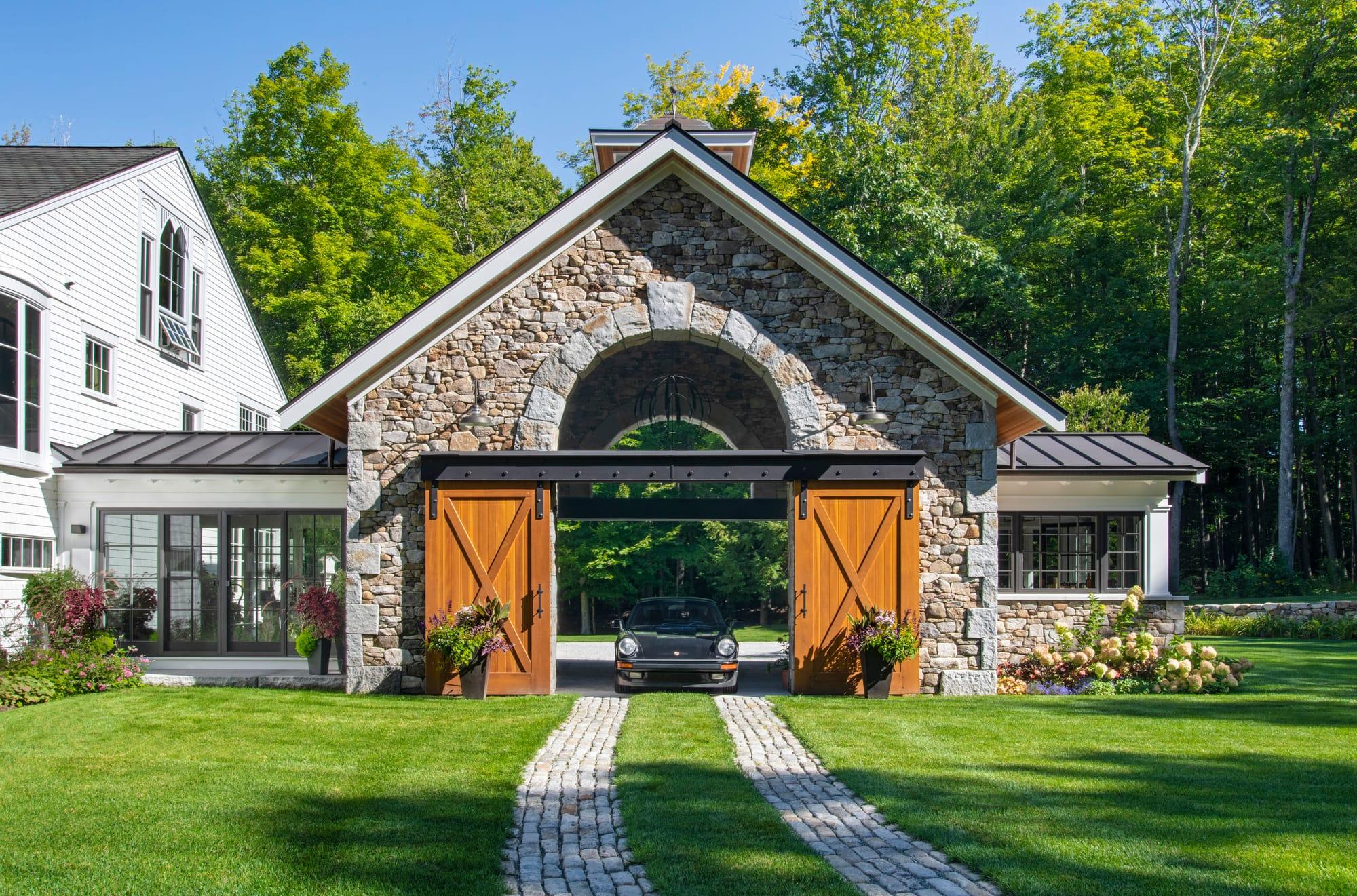Price Matching for Furniture Shoppers
This guide covers price matching policies for major furniture retailers like Wayfair, Target, Walmart, Amazon, Pottery Barn, West Elm, and more. Learn which stores offer price matching, any stipulations, and how to save on your next furniture purchase.

Price matching is a retail practice where a store agrees to match the price of a product when a customer finds the same item at a lower price from a competitor.
Many stores offer price matching. Few stores expect you to take advantage of it. Since furniture prices fluctuate across retailers, understanding price matching policies can be the difference between paying full price and finding a great deal.
1. What is Price Matching?
Price matching is when a retailer agrees to match a lower price found at a competitor for the same item. This ensures that shoppers are paying the lowest possible price without having to switch retailers. Furniture retailers often offer price matching as a way to stay competitive and retain customers.
Key Benefits:
- Saves money by offering the best available price
- Reduces the need to shop around at multiple stores
- Is emotionally satisfying and confers confidence at not overpaying

2. Which Furniture Retailers Offer Price Matching?
Many major furniture retailers offer price matching, though their policies and stipulations can vary. Here are some notable brands with their respective price matching guidelines:
- Ashley Furniture offers price matching if you find a lower price from an authorized retailer within 30 days. The item must be identical in brand and model. (Ashley Furniture price match policy)
- Crate & Barrel offers price matching for identical items from authorized retailers. Price adjustments are available within 14 days of purchase. (Crate & Barre price match policy)
- Overstock price matches for major retailers like Amazon. The item must be the same and in stock. Clearance or special promotion items are excluded.
- Target has a comprehensive price match policy. They will match the price of an identical item from select online retailers like Amazon, Walmart, and Best Buy. You can request a price match within 14 days of your purchase if you find a lower price elsewhere. (Target's price match policy.)
- Walmart offers price matching for items sold by Walmart.com and select online retailers like Amazon. However, price matching does not apply to items purchased from third-party sellers or during special promotions like Black Friday. (Walmart price match policy)
- Macy's offers a price match for identical items sold at a lower price by select competitors. You can request a price match both in-store and online, but it excludes clearance or promotional items. Additionally, Macy’s will adjust the price if the item drops within 10 days after purchase.
3. Which Furniture Retailers Do Not Offer Price Matching?
Many furniture brands and retailers do not offer price matching. These include:
- Amazon: Amazon does not offer price matching for any items. Their pricing is highly dynamic, meaning prices can fluctuate frequently.
- Wayfair and its family of brands do not price match. (Wayfair)
- AllModern is a Wayfair family brand and does not price match.
- Birch Lane is a Wayfair family brand and does not price match.
- Joss & Main is a Wayfair family brand and does not price match.
- Houzz does not have a universal price matching policy. However, they sometimes offer price adjustments within a limited period if a product’s price drops after purchase.
- West Elm offers price adjustments. If an item goes on sale within 14 days of your purchase, you can request a price adjustment. The policy does not apply to outlet or clearance items.
- Pottery Barn provides price adjustments within 7 days of purchase. This applies only if the item you purchased goes on sale within that window. Clearance and promotional items are excluded.
- Lulu and Georgia does not have a formal price matching policy, but they may offer price adjustments for items that go on sale shortly after purchase. It’s best to contact their customer service directly for clarification.
Each retailer has its own set of rules, so it’s important to review the fine print before requesting a price match.
4. How to Take Advantage of Price Matching
To successfully use price matching, follow these steps:
- Research Competitor Prices: Look for identical items at major competitors, paying attention to model numbers and product specifications.
- Keep Track of Promotions: Watch for sales and promotional offers, as some retailers may exclude these from price matching.
- Know the Terms: Make sure you understand the retailer’s price matching conditions, including timeframes and product eligibility.
Pro Tips:
- Don’t hesitate to ask store managers for a price match, even if the policy isn’t clear.
- Use customer service chat tools on websites to request price matches quickly.
5. Key Terms and Conditions to Know
Price matching often comes with specific terms and conditions:
- Identical Items: Most retailers require that the item be exactly the same—brand, model number, size, and color.
- Exclusions: Clearance items, limited-time promotions, and refurbished products are often excluded from price matching.
- Price Adjustments: Some retailers offer post-purchase price adjustments, where they’ll match a lower price if the item goes on sale within a certain timeframe (typically 7-30 days after purchase).
Understanding these conditions can help you avoid frustration when requesting a match.
6. Price Matching vs. Price Tracking: What’s the Difference?
While price matching ensures you get the best current price, price tracking tools monitor prices over time and alert you when prices drop. Tools like Spoken or CamelCamelCamel allow you to track items and receive notifications when they’re at their lowest price. Price tracking is ideal for purchases that aren’t urgent, allowing you to wait for the best possible deal.
7. Tips for Maximizing Price Matching Success
To get the most out of price matching, consider these strategies:
- Loyalty Programs: Some retailers allow you to combine price matching with loyalty program discounts or credit card perks.
- Timing Your Purchase: Plan major purchases around sales events like Black Friday, when many stores offer additional price matching opportunities.
- Post-Purchase Price Matching: Even after buying, check if the price drops within the retailer’s price adjustment window.
- Combine Discounts: Look for ways to stack price matching with coupons or promo codes for even bigger savings.
8. What to Do When a Store Declines a Price Match
Not all price matching requests are accepted, but there are ways to handle a refusal: Negotiate. Ask for store credit or a small discount if the retailer won’t match the price.
9. Common Mistakes to Avoid
Avoid these pitfalls when price matching:
- Unverified Prices: Ensure the competing price is legitimate and from an authorized retailer.
- Ignoring the Fine Print: Read the terms carefully to understand exclusions and limitations.
- Not Acting Fast: Some price matching policies are time-sensitive, so act quickly when you spot a lower price.
10. Will Retailers Price Match White-Labelled Items?
Retailers usually don’t price match white-labelled items due to the following reasons:
- Brand Exclusivity: White-label products are often branded differently by each retailer, making it hard to meet the “identical item” requirement.
- Model Number Variations: Retailers assign different model numbers to white-labelled items, preventing them from qualifying for price matching.
- Private Label Protection: Stores use branding to protect their in-house labels, making it unlikely they will match a price from another retailer on similar items.
11. Why Price Matching is a Game-Changer for Furniture Shoppers
Price matching can lead to substantial savings, especially on big-ticket items like sofas or dining sets. For example, shoppers have saved hundreds of dollars by using price matching during large sales events. As more retailers compete in the online space, price matching is becoming an important tool for shoppers to ensure they get the best value.
Ready to find the best prices on your next furniture purchase? Use Spoken to compare prices across retailers and ensure you're always getting the best deal. With price matching and price tracking, you can confidently make your next big purchase without worrying about overpaying.
Quick facts
How does price matching work?
Price matching allows a customer to request a lower price for an item if they find it cheaper at a competitor. Typically, proof of the lower price is required, and the store will adjust the price to match the competitor. Many furniture retailers offer price matching, such as Ashley Furniture and Crate & Barrel, making it easier to ensure you're getting the best deal.
Why would a company want to price match?
Companies price match to stay competitive and retain customers who may otherwise shop elsewhere for a better deal. For furniture stores, price matching helps them compete with online retailers and build customer loyalty. Stores like Target and Walmart have clear policies for price matching, helping ensure customers return for future purchases.
Can I ask a store to price match?
Yes, you can ask a store to price match if they offer this service. You typically need to show proof of the competitor's lower price, and the store will adjust their price accordingly. However, not all stores offer price matching; for instance, Wayfair and its family brands (AllModern, Birch Lane) do not have price match policies.
Is price matching legal?
Yes, price matching is legal. It’s a common practice used by retailers to offer competitive prices and attract customers. Most major furniture retailers like Ashley Furniture and Macy's allow price matching, though some retailers, like Amazon and Wayfair, do not.
What are the rules for price match?
Rules for price matching vary by retailer, but they generally include providing proof of the competitor’s price and ensuring that the product is identical in brand and model. For example, Crate & Barrel requires items to be the same in stock and brand, while exclusions often apply for clearance items.
What is the price adjustment rule?
The price adjustment rule allows customers to receive a refund for the difference if an item they purchased goes on sale shortly after. Furniture retailers like West Elm and Pottery Barn offer price adjustments within 7-14 days of purchase, but items bought on clearance or promotional sales are often excluded.
Why is matching competitors' prices considered a risky pricing strategy?
Price matching can be risky because it may reduce profit margins, especially when done frequently. Retailers may also enter price wars, driving down prices across the market, which can negatively affect both brick-and-mortar and online stores. For retailers that already operate on low margins, such as Walmart, frequent price matching could impact profitability.
What are three criteria a product must meet in order to price match at Target?
To price match at Target, the product must be identical in brand, model, and size. The lower price must be found at select competitors, including Amazon and Walmart, and the product must be in stock. Target excludes clearance items and special promotions from price matching.
Does Walmart price match?
Walmart offers limited price matching for items sold by Walmart.com and select online retailers like Amazon. However, price matching is not available for third-party sellers or items purchased during special promotions like Black Friday. Shoppers should always check for exclusions before requesting a price match.
What if an item goes on sale after I buy it?
Many stores offer price adjustments, allowing you to get a refund for the difference if an item goes on sale shortly after purchase within a certain number of days of your purchase. Clearance and promotional items are typically excluded.
Does Home Depot price match?
Yes, Home Depot offers price matching, including for online prices from major competitors like Amazon and Lowe's. The item must be identical, and proof of the lower price is required. Home Depot's price match policy excludes clearance or special promotion items.
Does Wayfair price match?
No, Wayfair does not offer price matching, and neither do its family brands (AllModern, Birch Lane, Joss & Main). However, Wayfair frequently runs sales and discounts on furniture, helping customers find competitive pricing without the need for price matching.
Does Ashley Furniture price match?
Yes, Ashley Furniture offers price matching if you find a lower price from an authorized retailer within 30 days. The item must be identical in brand and model. Be sure to provide proof of the lower price to request a match.
Does Crate & Barrel price match?
Yes, Crate & Barrel offers price matching for identical items from authorized retailers. You can request a price adjustment within 14 days of your purchase if you find the same item at a lower price elsewhere.
Does Overstock price match?
Yes, Overstock offers price matching for major retailers like Amazon. The item must be the same and in stock. However, clearance or special promotion items are excluded from price matching.
Does Target price match?
Yes, Target offers a comprehensive price match policy. They will match the price of an identical item from select online retailers like Amazon, Walmart, and Best Buy. You can request a price match within 14 days of your purchase if you find a lower price.
Does Macy’s price match?
Yes, Macy's offers price matching for identical items sold at a lower price by select competitors. Price matches can be requested both in-store and online, but clearance or promotional items are excluded.
Does Amazon price match?
No, Amazon does not offer price matching for any items. Their pricing model is highly dynamic, meaning prices can change frequently based on demand and inventory.
Does West Elm price match?
No, West Elm does not offer price matching. However, they do provide price adjustments within 14 days of purchase if the item goes on sale. Clearance or outlet items are excluded from this policy.
Does Pottery Barn price match?
No, Pottery Barn does not offer price matching. However, they do offer price adjustments within 7 days of purchase if the item you bought goes on sale within that window.
Does Lulu and Georgia price match?
No, Lulu and Georgia does not have a formal price matching policy. However, they may offer price adjustments if an item goes on sale shortly after your purchase. It's best to contact their customer service for clarification.
Does Houzz price match?
No, Houzz does not have a universal price matching policy. However, they may offer price adjustments within a limited period if a product’s price drops after purchase. Be sure to check with their customer service for details.

Geoff Abraham
Co-founder & President of Spoken
Geoff is the co-founder and President of Spoken. He is a Dad. He holds a BA from UT Austin (Plan II) and an MBA from Stanford. Geoff has built several successful businesses, including a bicycle taxi business in San Francisco which he ran for 10 years with his wife, Mimosa. He is an executive coach, and he actively invests in seed-stage startups via The Explorer Fund.
Read more

